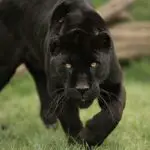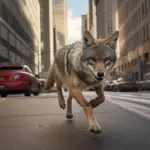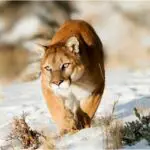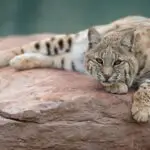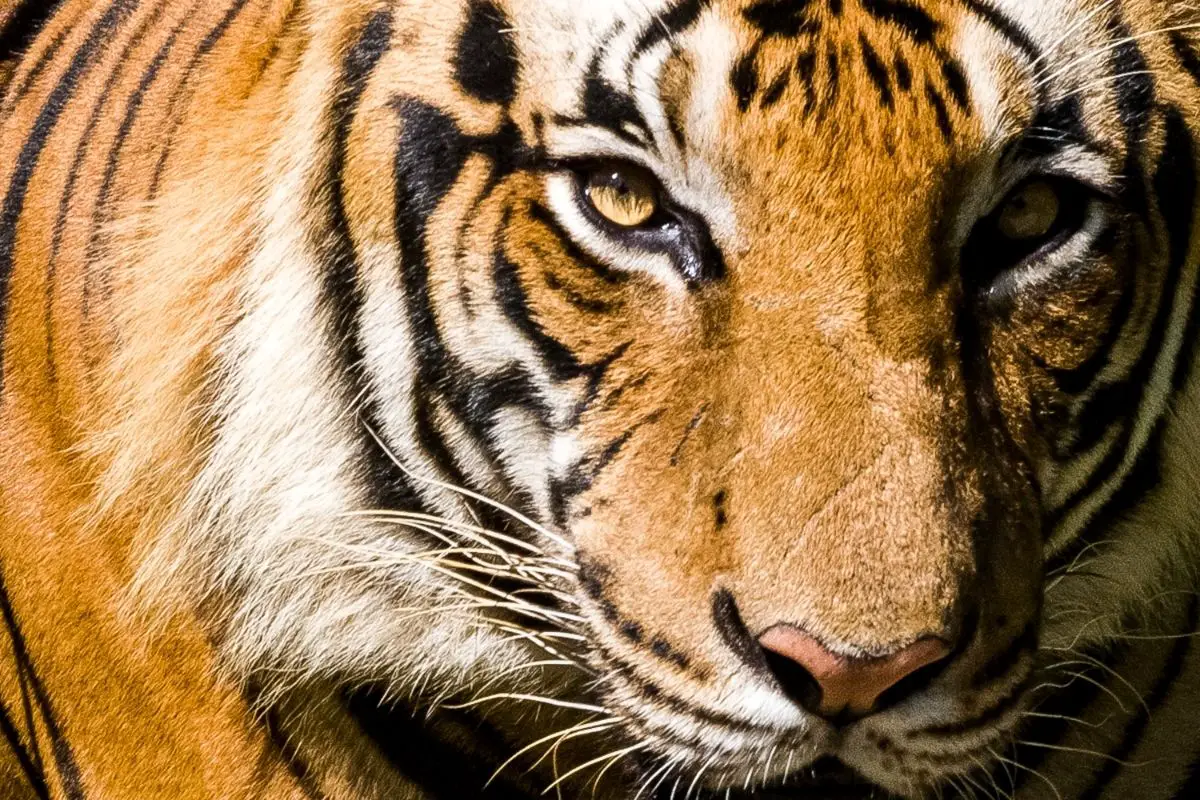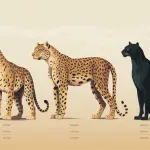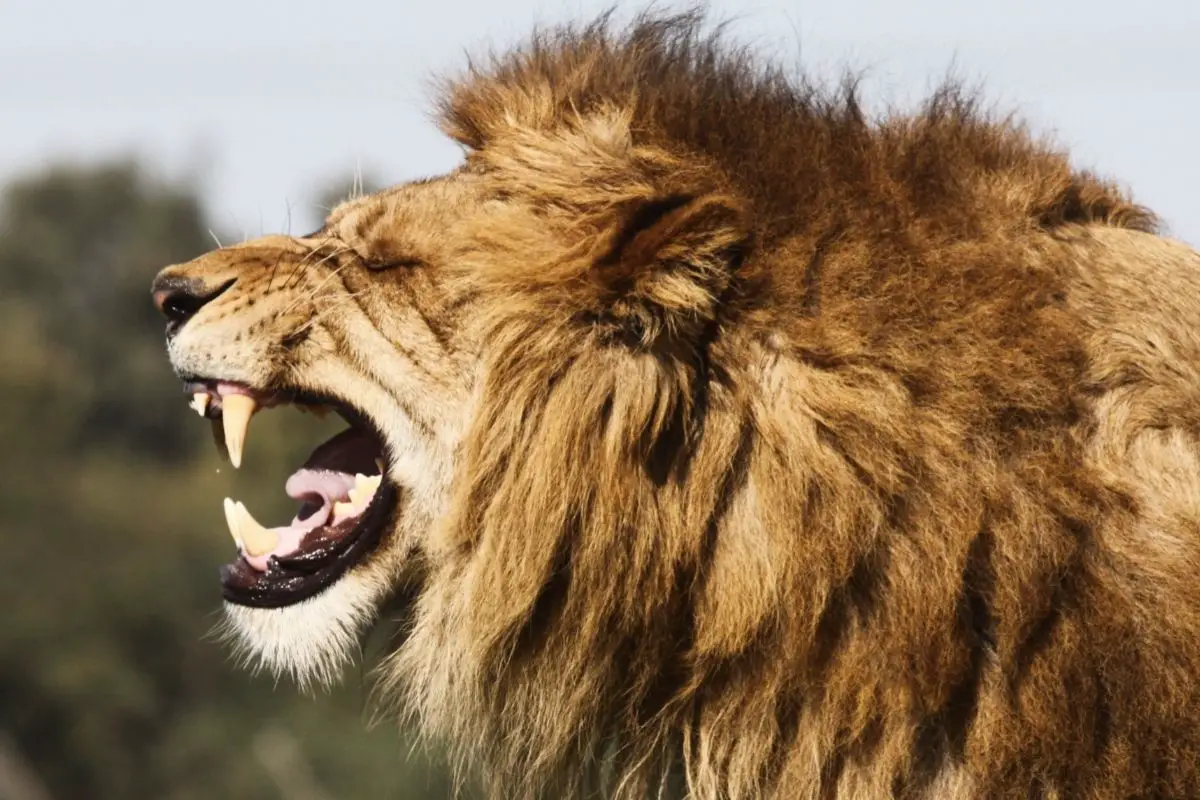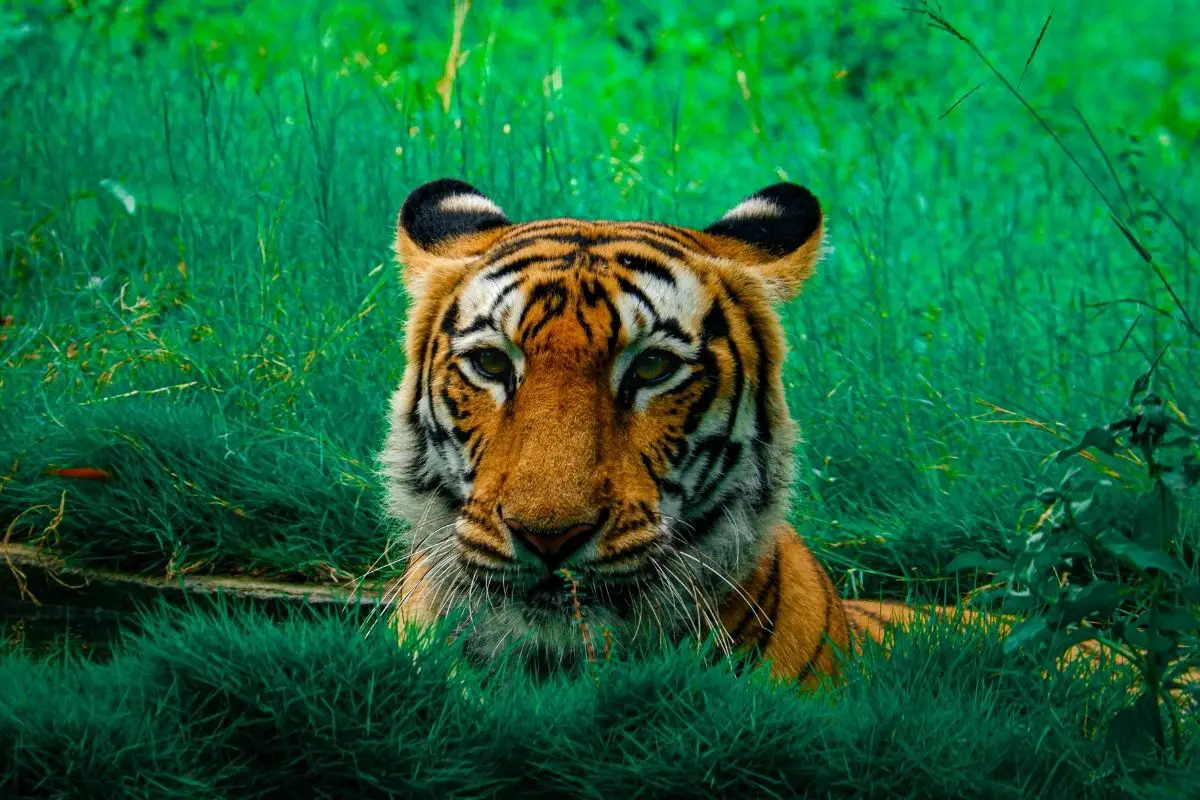Lions are one of Africa’s apex predators, with their chances of catching their prey increased when working together in groups.
When we consider the agility, speed, and strength of lions they may seem unstoppable.
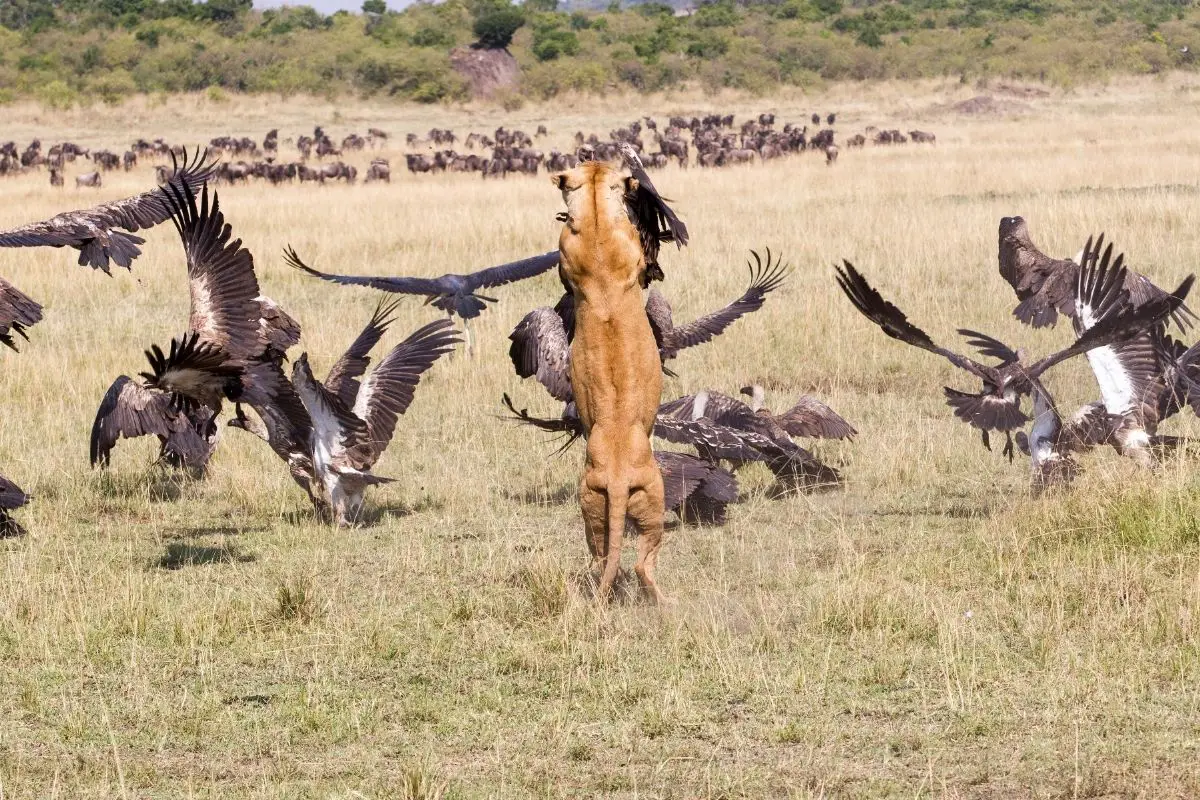
Ruling the Serengeti, it may seem like they eat almost any animal that is below them on the food chain – but is this the case? For instance, do they eat vultures?
Vultures are fascinating creatures, although they are also misunderstood. Because they feed almost exclusively on carrion, people often find these birds disgusting.
However, their eating habits provide a useful service as they rid the environment of decomposing carcasses. Unfortunately though, their numbers are declining.
Is this because they are being preyed on by lions? Or is there something more behind this decrease in population?
Do Lions Eat Vultures?
Lions do not eat vultures, however vultures do have a couple of natural predators, especially at the fledgling stage.
Immature – and even adult – vultures often fall victim to bald eagles, golden eagles, horned owls, and red-tailed hawks.
Meanwhile, turkey vulture eggs and nestlings also may be preyed on by opossums and raccoons (at least in North America).
While lions have virtually no natural predators, lions that are old, sick, or are very young and have been separated from their mothers are sometimes attacked and killed by hyenas, and if they have died from natural causes then vultures may eat their carcass.
What Other Animals Eat Vultures?
So while lions don’t eat vultures, this doesn’t mean that vultures have no predators.
In fact, humans are the main predators faced by vultures, and are poached for their body parts.
Their natural predators include hawks, jackals, and snakes, however these animals usually prey on juvenile birds rather than adult vultures.
Vultures are vulnerable to attacks from their natural predators from the sky, the ground, and even from the water.
For instance, crocodiles often prey on vultures if they’re close to the water.
Let’s take a closer look at the most common predators of vultures.
Jackals
Jackals are considered to be scavengers, but they also hunt their prey.
Much like vultures, their main source of food is the remains left over from the kills of other predators.
But when food is scarce they will hunt for food themselves, and this is when vultures come under attack.
Fledglings and immature birds of any species are bound to be more vulnerable to prey than their parents are.
However, young vultures are even more vulnerable because they reach maturity much later than other birds of prey.
Vultures are very protective of their nests, and the male and female share equal responsibility for protecting and feeding their young.
Vultures are susceptible to jackal attacks because unlike jackals, vultures are usually unable to tear through the hide of carcasses, so they will wait for jackals to arrive and open the carcass up for them.
When there is enough food to go around, you can see jackals and vultures eating together and minding their own business.
However, if there isn’t enough to go around, jackals are likely to attack.
Hawks
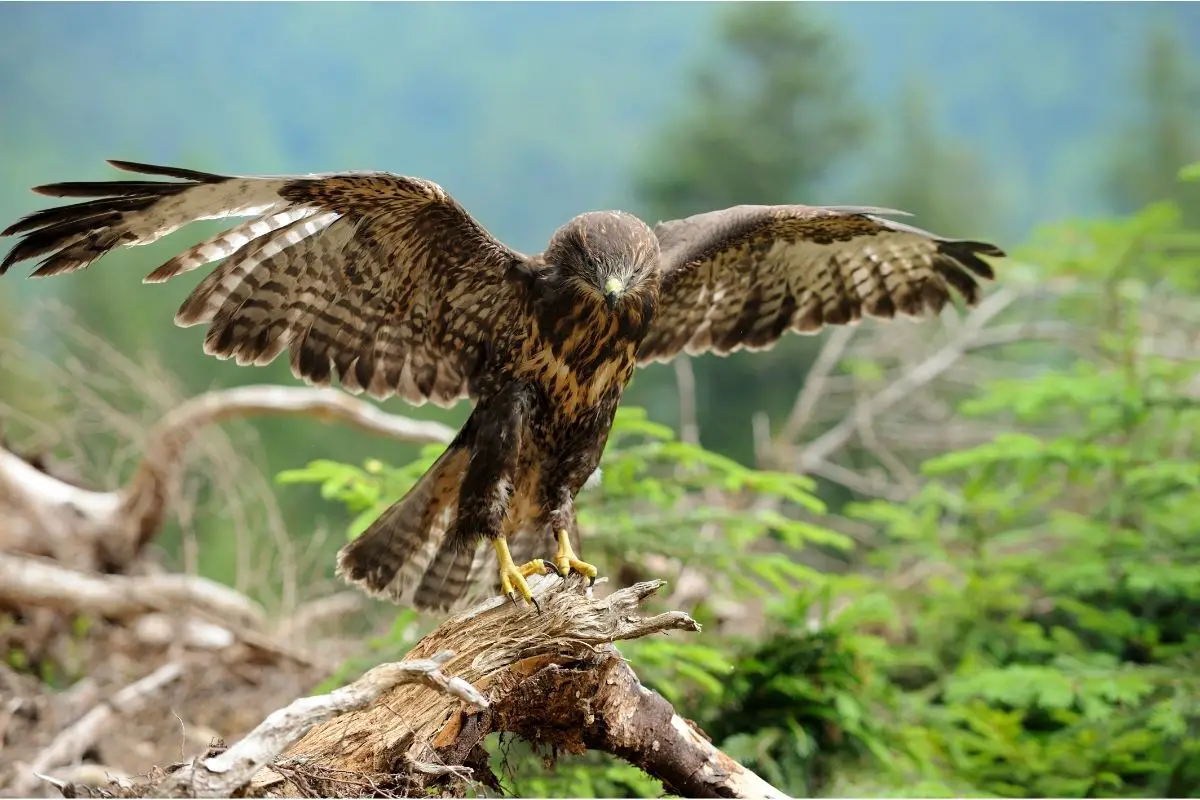
Hawks are one of the most powerful birds of prey, due in part to their incredible sight.
While hawks are in flight, they can see a small rodent on the ground from 100 feet away!
Hawks also have powerful beaks and sharp talons that are perfect for hunting.
Red-tailed hawks are a big predator of young vultures, and will often steal them from their nests.
As mentioned, young vultures take longer to mature than other birds of prey, and are reliant on their parents to feed and protect them for about 130 days.
In fact, a white-backed vulture chick doesn’t become fully mature until they’re about 5-7 years old.
While hawks are powerful predators, adult vultures are a worthy opponent to them.
For one thing, adult vultures are much larger than hawks and have a longer wingspan.
They also have stronger beaks! So protective vulture parents undoubtedly put up a good fight when a hawk comes calling!
However, if the nests are unguarded for any reason, then it is all too easy for a hawk to pick off a defenseless vulture chick.
Snakes
Snakes have a broad diet that includes wild animals, domestic animals, insects and herbivores.
Vultures may also fall prey to snakes, and much like hawks, they prefer to pick off young chicks as they are smaller and weaker.
You may be wondering how snakes get access to vulture chicks, as birds often build their nests far away from the ground, in trees or on cliffs, to avoid their nests being attacked by predators.
However, snakes are surprisingly agile climbers and are able to slither up pointy branches and jagged rocks to eat vulnerable chicks.
Some snakes even exclusively eat eggs, taking advantage of when the vulture parents leave the nest briefly to feed.
However, it is very rare that snakes often have the chance to eat vulture eggs as parents vigilantly guard their nests.
Are Vultures Important?
Carcasses in the wild can be a source of disease, posing a danger to animals as well as humans.
Vultures feed on these animal carcasses, and by doing so help to prevent the spread of disease and clear the environment of carcasses.
Vultures play a vital role in our ecosystem, preventing diseases like brucellosis, rabies, and tuberculosis from spreading by eating the carcasses left over by other predators.
Another interesting fact about vultures is that the acid in their stomach is extremely corrosive, and is able to neutralize bacteria that causes disease.
Final Thoughts
Vultures are divisive animals, and are often viewed in a negative light.
Although lions do not prey on these birds, they do have a handful of predators in the wild.
However, the biggest threat to their population is posed by humans.
To conclude, lions don’t eat vultures, but they do have to compete with them in the wild for pieces of meat.
Vultures in fact eat the carcasses of lions, and play a useful role in the ecosystem by doing so.
- Sink Your Teeth Into This: Analyzing the Powerful Lion Bite Force - September 8, 2023
- Siberian Tigers: Everything You Need To Know - September 4, 2023
- Do Lions Eat Humans? Understanding Lion Aggression and Risks - September 4, 2023

